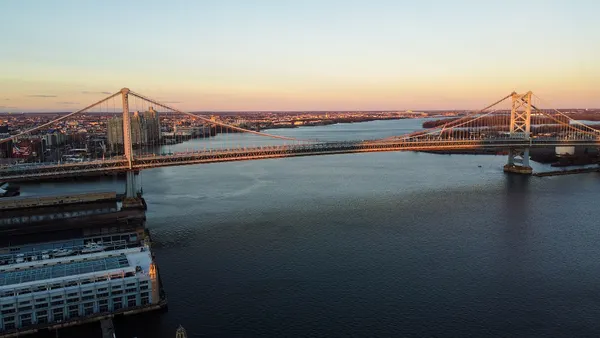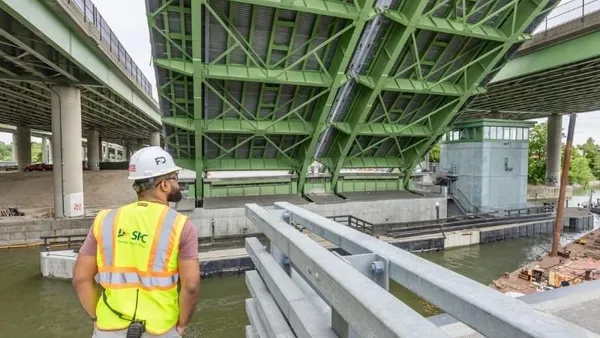Dive Brief:
- Rep. Bill Shuster (R-Pa.), chairman of the House Committee on Transportation and Infrastructure, told The Hill last week that the infrastructure bill-writing process for the president's $1.5 trillion plan could be complete by summer.
- Shuster is working with the committee's ranking member, Peter DeFazio (R-Ore.), on a bipartisan measure based on the 55-page proposal for an infrastructure plan President Trump issued last week.
- Although President Trump's plan centers around the role of public-private partnerships (P3s) and a more significant financing commitment from state and local governments, one of the challenges committee members will face in crafting the bill is deciding how the federal government will finance its projected share of $200 billion.
Dive Insight:
Upgrading the nation's roads, bridges and other public assets is certainly an issue that has support from both sides of the aisle, but the question of how taxpayers will chip in is another story.
When the president first suggested a massive infrastructure overhaul during his campaign, the plan, then valued at $1 trillion, was set to be fueled primarily by private investment in exchange for a huge federal tax credit. Democrats pushed back against so much control over publicly owned assets being given to the private sector and suggested the plan could be funded by direct federal spending. This irked Republicans, who promised to block any federally funded stimulus plans.
When President Trump took office, infrastructure was pushed aside as his administration tackled issues like healthcare, the budget and immigration, but, still, the president would remark occasionally about how big a role the private sector would play and how the initiative might be funded, at least at the federal level.
As the president's January State of the Union address approached, leaked documents about his infrastructure plan began to pop up, their authenticity verified by their similarity to the president's official proposal. In it, he shifted the majority of the funding responsibility to state and local governments, but still left up in the air how the federal government would finance its portion.
There have been a few proposals in that regard. One would see the corporate tax rate increased to 23% and another would levy a $49-per-ton tax on carbon emissions from coal, oil and natural gas.
But it looks like an increase in the federal gas tax, which hasn't been raised since 1993 and pays for infrastructure projects via the Highway Trust Fund, is gaining traction. Even DeFazio proposed a small increase back in March. The president's team floated the idea of a seven-cent-per-gallon increase earlier this year, but the latest reports have the White House backing a 25-cent hike, the same amount that the U.S. Chamber of Commerce suggested in January.













